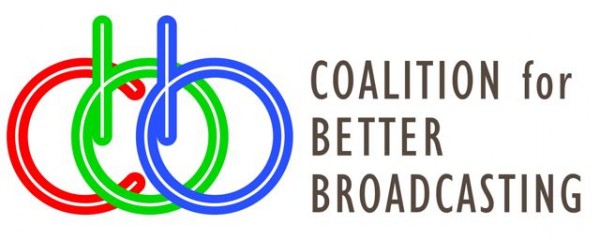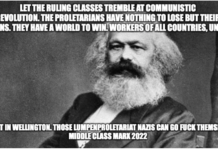Paul Thompson is a man who can move mountains and in moving Radio NZ into another decade, he may have set off an avalanche – Chris Laidlaw retired and replaced by Wallace Chapman, Geoff Robinson retired and replaced by Susie Ferguson, Simon Mercep moved and replaced by Guyon Espiner, Jim Mora moved and replaced by Simon Mercep, Peter Fry retired, Wayne Mowat retired and now Don Rood restructured out of his position as Head of News. Clearly this avalanche has been building for a long time but there’s a risk it could sweep Radio NZ right off the mountain.
Over the next ten years Radio NZ’s CEO, Paul Thompson wants to attract younger listeners to the network, and double the audience from 500,000 Kiwis to a million. Ambitious stuff for an underfunded broadcaster, and problematic too.
Problematic because attracting younger listeners can only mean less programmes for older listeners, so where does this trade-off leave oldies? What other options do the over-60’s have for informative listening?* Thompson will find that trying to programme to all ages means inevitably disappointing everyone some of the time.
That’s where a better funded Radio NZ should come in with separate stations for each age-group. Instead of changing the demographic, Radio NZ should be announcing a new non-commercial radio network for younger listeners. Australia has had Triple J for many years, us Kiwis just got a website, the Wireless.
Everywhere else in the world, media is diversifying, fragmenting, expanding the options for smaller niche audiences – and that’s a great thing for audiences. But here in NZ the opposite is the case, a steady reduction of television channels and radio stagnation.
If Radio NZ had built the youth radio network proposed eight years ago, Paul Thompson would be able to let Radio NZ National stay true to older listeners without fear. And he’d still be on course to double his audiences in 10 years. Instead Paul Thompson is effectively starting a ratings war with himself and the end result is likely to be just like every other ratings war – dumbed down, commercial style radio, this time without adverts.
* Actually this is a question that applies to all NZ listeners.
Myles Thomas is Chief Executive of the Coalition for Better Broadcasting.







“Thompson will find that trying to programme to all ages means inevitably disappointing everyone some of the time.”
This is the ironic thing about our post-ideological age – we’re more ideological than ever, but we can’t see that because we’re all stuck in the same ideology. This is the ‘broad church’ and the rush to the ‘centre’ that we (don’t) see in every aspect of our lives.
RNZ is becoming more like RadioLive each day. What is the point of RNZ these days? All I ever seem to hear on there is Williamson and Hoots stroking each other’s neoliberalism and talking about how big their merits are.
Also, what on earth makes these people think that younger people will tune into RNZ? Radio is up against the internet now, just like TV. Don’t try to appeal to the internet crowd because you will lose. When I go for a walk I can download a podcast/lecture/presentation/music of anything I want. Tell me how RNZ can offer me something better than that?
We have two options with public broadcasting; either invest heavily into state funded TV and radio, or leave it to the market and invest in making the internet free, fast and unlimited for all. One or the other will work, but state funded shite is still shite. Hoots should not be allowed near public broadcasting, he should be a guest on Paul Henry’s show.
Can I just add this: Radio NZ has been/is a refuge for quality radio full-stop. A minority of young listeners need it as much as a minority of older listeners. You don’t need to reach a certain age to realize how good Kim Hill is, and how rare her show his in the mostly anti-intellectual climate of New Zealand. I keep my fingers crossed they won’t let this ship sink…
Very true!!
Couldn’t agree more. While I have a certain respect for Thompson, if that is his strategy then he’s misguided. Most younger-to-middle aged listeners get their “radio” (and “TV”) entertainment straight off the web, not off free-to-air radio. That is unlikely to change.
A lot of older listeners however tune in to free-to-air radio, especially if its non-commercial. But if that no longer ‘does it’ for them, they’ll just switch off and won’t bother with radio at all. (or they might opt to invest in a better CD player or MP3 player and listen to music of their own choice instead).
Based on a N of 1, thats certainly the way i’m currently trending, as a long-term National Radio listener.
I am an oldie and I consider RNZ worthy but generally tedious. If I want intelligent debate and discussion I go to the BBC. The lack of NZ content is hardly a disadvantage.
Have listened to National Radio for over 40 years, nowadays I usually turn it off within 10 minutes—peeps don’t expect to listen to old grey men talking their prejudices to all and sundry, with a few of their personal medical problems thrown in as a teaser—-or younger women hosts (hostesses) trying to act out whatever their version of “normal” is,— who cares??
Young folk would be well advised to leave this station to the rest homes.
I am old too but not brain dead yet!
This ambition of ‘capturing younger audience’ propoganda was pulled on a student radio I was invovled with just before voluntary fees came in. They evisertated the old, loyal anouncers and got more ‘younger – more popular’ music on and hipster djs. End result: the audience that had followed them for years (since they were at Uni) turned off, they didn’t really get any more numberswise and the programme director hopped into Mediaworks stables (last heard – More FM DJ). The station was struggling to get djs and -from what I know from people I know – they never got their loyal audience back. The best example of how to revitalise a station would be Triple R. Their philosophy is: give your audience what they want and they’ll stick with you so as you lose some to ‘natural causes’ you will gain another generation of those who like what they hear, and who will again carry on being loyal.
Oh – I should say Triple R is noncommercial and gets it’s funding through donations and the ‘radio drive’ they have every year.
National (Party) Radio needs to get back to what it needs to be – not a ‘whazzoh’ ‘ShaZamm’ low rent ZB – it’s the 2nd Most Popular Station for crying out loud (well it was resently – who knows it’s ratings now)
@ Ben: “I am an oldie and I consider RNZ worthy but generally tedious. If I want intelligent debate and discussion I go to the BBC. The lack of NZ content is hardly a disadvantage.”
I’ve found that the BBC isn’t above a bit of worthy tediousness – or tedious worthiness – at times. And it hasn’t always been the impartial reporter of record that it purports to be, either. Its reportage of the Ukraine crisis earlier this year wasn’t its best effort, I must say.
I do want to hear intelligent debate on NZ issues, and I expect to get it from RNZ: that sort of content ought to be its bread and butter, rather than the candyfloss offered by commercial radio.
I’m very sad to hear that Don Rood’s gone; I assume that there will no longer be anybody doing that particular job. I don’t think that change of this sort augurs well for quality news output.
I’m also an oldie. I’ve been listening to RNZ since my youth; I was always prepared to overlook the fuddy-duddiness of some of the programming back then, in order to have access to news, political interviews and analysis, and current affairs, that weren’t available on commercial radio – and still aren’t, as far as I can tell. What are we to do, if that sort of content vanishes from RNZ?
“Most citizens do not become journalists or writers. Few of us will have lengthy and sustained opportunities to speak and be heard. But we do have the right to hear. It is one of the ways in which we will feed the debates in our personal lives. That is our democratic right. They have the right to hear a variety of opinions and we all have the right to hear a varied debate.
This is one of those fascinating moments in a civilization when you need to have a fundamental debate in order to get at the roots of what is happening. That is quite different from reacting in a specific manner in order to alleviate the effects of what is happening. If we do not give ourselves the right to have that fundamental debate, we could find ourselves locked in a process which is destructive for our democracy.”
John Ralston Saul
Comments are closed.